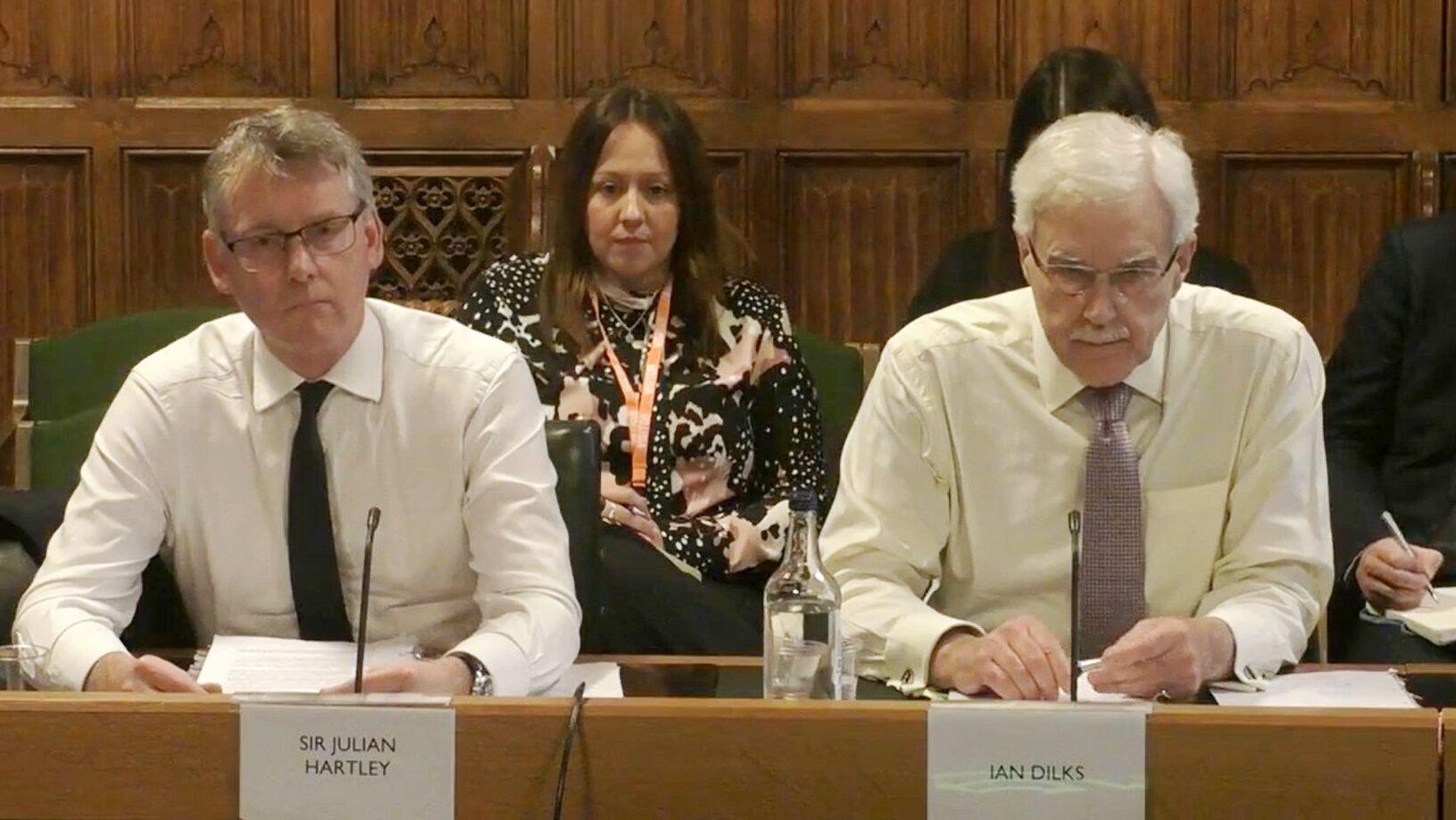Line of duty: how can we manage ‘on call’ better?
While some thrive on it, many managers hate being on call – unable to relax while waiting for the dreaded call and nervous about taking critical decisions without enough training or support. Yet the NHS still lacks a national framework for fairly managing this crucial responsibility. There has to be a better way, writes Rhys McKenzie.

Being on call is a regular occurrence for many senior NHS managers. Being available at a moment’s notice to respond to emergency situations, either in hospitals or national and regional bodies, is something most accept as part of the job. But the procedures and protocols that define what’s expected of a manager, how often their turn on the rota comes round and the support and training they’re offered before and during on call shifts, are far from set in stone.
The lack of an agreed national framework on how each organisation should develop local on call policies, means each NHS organisation probably has a different set of guidelines. This creates a system that is inconsistent and patchy, and one that most managers feel isn’t fair.
It’s widely agreed that local arrangements for on call protocols is the best approach, as each employer will face different circumstances in terms of both need and supply. But too few employers develop these policies in partnership with staff and unions, resulting in unnecessary hardship for many managers on the rota. While some employers have agreed procedures which ensure managers can confidently join on call rotas, many rely on the same small pool of managers far too frequently, fail to give them the proper training to deal with the scenarios they’ll face and don’t remunerate staff fairly for their efforts.
“It’s the frequency”
Being on call can have a massive impact on your work-life balance. Although many situations can be dealt with remotely, on call managers cannot be too far away from their workplace. Members tell MiP they can’t relax knowing they could be called in at any point. This would be much more manageable if managers were only required to take their turn every few months, but many managers in busy hospitals can spend one weekend in every three on call.
While managers are paid while on call, payment will also vary from employer to employer, and may not always be at a higher rate. Worse still, most managers who are required to be on call already work additional hours throughout the week for which they’re not compensated.
“For many managers, it’s the frequency that really bothers them”, says MiP national officer Rosie Bartram, who has been working with employers in Yorkshire on new procedures to make on call more manageable for staff. “Everyone accepts that you’ll need to take a turn, but it shouldn’t be multiple times within a two-month period. It means single parents have to arrange childcare in advance, in case they might be called in. It’s costly, and the frequency in many places means it’s extremely difficult to plan in advance.”
The lack of training and support is also a problem for many managers, who may have no experience of being on call and have to make significant decisions without actually being in their workplace. This causes significant stress and anxiety, often leading to staff turning down promotions to band 9 (and in some cases 8d) to avoid it.
Two-tier system
Rosie believes that on call works best when local agreements are developed in partnership with staff. “We’ve been saying for some time that employers should consult and negotiate with staff and their unions to establish fair on call rotas and protocols. Despite their variations, local agreements work much better for the staff on call and the staff in the workplace. When no agreement is in place, there’s anxiety and uncertainty, which ultimately impacts staff wellbeing and can have a knock-on impact on patient care, especially if managers haven’t had the training needed to deal with the scenarios which may come up.”
Most trusts operate a two-tier system, with one very senior or executive grade manager supported by the ‘first on call’ manager, usually a Band 9. But in MiP’s experience, the senior manager usually delegates decisions to their more junior colleague. Many members have told us that they are made to feel that their first job while on call is to prevent the senior executive from being bothered. This means managers, who may be untrained and inexperienced, often have nowhere to turn for support.
The lack of an established on-call framework sometimes results in staff who have no decision making roles in core working hours, being asked to make decisions – sometimes critical ones – out of hours. Without adequate training, this is setting people up to fail. Training for situations which by their very nature are often extraordinary or an emergency, is easier said than done. But it still needs to happen to ensure staff on call have the right skills and experience to handle potential situations calmly and effectively.
Fair terms and flexibility
There is plenty of scope to develop a more effective on call system. One idea is to identify managers who like being on call and offering them the pay, conditions and flexibility that allow them to do it well. Some people thrive being on call. They like the pressure and are good at handling it. Employers could focus on call rotas on these managers, offering them fair terms and the flexibility to make the arrangements work.
Another key improvement would be for each employer to develop local arrangements in consultation with staff. These arrangements could include protocols that ensure staff are not on call more than once every three months, offer agreed periods during the year when staff won’t be required to be on call, and provide all staff on call with the necessary training and support to deal with operational emergencies.
Some organisations have introduced a ‘buddy system’ to get people up to speed. It’s a simple step, but it makes a difference. The big challenge is pairing new staff with a more experienced manager when the on call rota is already short of staff. If managers are already on call too often, there isn’t much scope to find an additional manager to train someone new.
With the many workforce issues affecting the NHS at present, establishing fair on call policies is not a high priority for employers or government. But MiP chief executive Jon Restell thinks it should be. “We know there are recruitment and retention issues for senior management positions in the NHS – notably staff choosing not to pursue promotions as they feel the terms on offer at the highest bands are not a fair reflection of the extra responsibility, pressure and workload,” he says. “While pay is clearly a large element of this, other factors such as expectations around on call rotas, contribute to their concerns.
“On call arrangements must be looked at in a wider discussion about the better design of senior roles, to get procedures and policies in place to make the highest bands an attractive proposition for staff,” he adds.
As part of the recent NHS pay deal in England, the government has committed to talks with NHS employers and unions on various non-pay improvements to the NHS employment offer. This, in addition to the long-promised workforce plan, offer good opportunities to start putting better on call procedures in place.
MiP will use these opportunities to work with NHS employers, government and health union colleagues to establish frameworks for developing on call procedures which can be applied across NHS employers. We’ll also continue working locally with employers to establish fair, sensible and reasonable on call procedures on an individual basis.
- Rhys McKenzie is MiP’s communications officer. To inform our discussions with employers, we’d love to hear about your experiences of being on call. Is it a part of the job you dread or one you thrive in? Please get in touch at info@miphealth.org.uk.
Related News
-

Regulating the managers: more questions than answers
The Labour government’s plans for regulating NHS managers are still shrouded in mystery, and the three options on the table each have their pros and cons. Rhys McKenzie weighs up the choices and gauges the views of MiP members on the best way forward.
-

The inspector falls: why the CQC needs a fresh start
After years of chaos, the Care Quality Commission urgently needs to rebuild trust and credibility with the public and the services it regulates. What needs to change and what are the priorities for new boss Sir Julian Hartley? Alison Moore reports.
-

Voice, value and vision: what analysts need from the NHS
Data analysts play a vital role in an NHS which is increasingly data-driven and focused on public health trends. But the NHS faces fierce competition for skilled analysts and many feel the health service fails to value them or fully use their talents. Alison Moore reports.